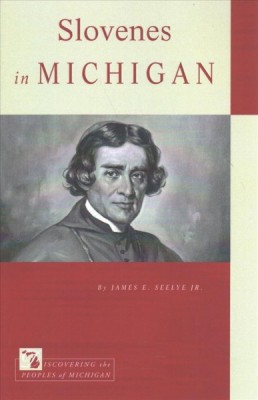| Slovenes in Michigan Contributor(s): Seelye, James E. (Author) |
|
 |
ISBN: 161186254X ISBN-13: 9781611862546 Publisher: Michigan State University Press OUR PRICE: $11.66 Product Type: Paperback Published: November 2017 |
| Additional Information |
| BISAC Categories: - History | United States - State & Local - Midwest(ia,il,in,ks,mi,mn,mo,nd,ne,oh,sd,wi - Social Science | Ethnic Studies - General - Social Science | Emigration & Immigration |
| Dewey: 305.800 |
| LCCN: 2016040840 |
| Series: Discovering the Peoples of Michigan |
| Physical Information: 0.3" H x 5.5" W x 8.4" (0.35 lbs) 106 pages |
| Themes: - Geographic Orientation - Michigan |
| Descriptions, Reviews, Etc. |
| Publisher Description: The Slovenes represent a small but important microcosm of Michigan history. Thousands followed the pioneering missionary Frederic Baraga and settled in the mining regions and forests of the Upper Peninsula before many of them scattered to the auto industry of the Lower Peninsula in the early twentieth century. Everywhere they traveled and settled, they left a detectable imprint that was clearly Slovene. The first Slovene in Michigan, Bishop Frederic Baraga, traveled extensively throughout the state. In his wake, families such as the Vertins and Ruppes followed, each playing an important role in their communities. In many regions of the state, the most recognizable names, buildings, and businesses bear their names and illustrate the long-lasting influences of Slovenes on the history of Michigan. To understand the history of Slovene immigration in the Great Lakes is to better understand Michigan history. |
Contributor Bio(s): Seelye, James E.: - James E. Seelye Jr. is an Assistant Professor of History at Kent State University at Stark. He coedited Voices of the American Indian Experience and the American Indian volume of The Great American Mosaic: An Exploration of Diversity in Primary Documents. His articles have been published in such journals as Inland Seas and Baptist History and Heritage. |